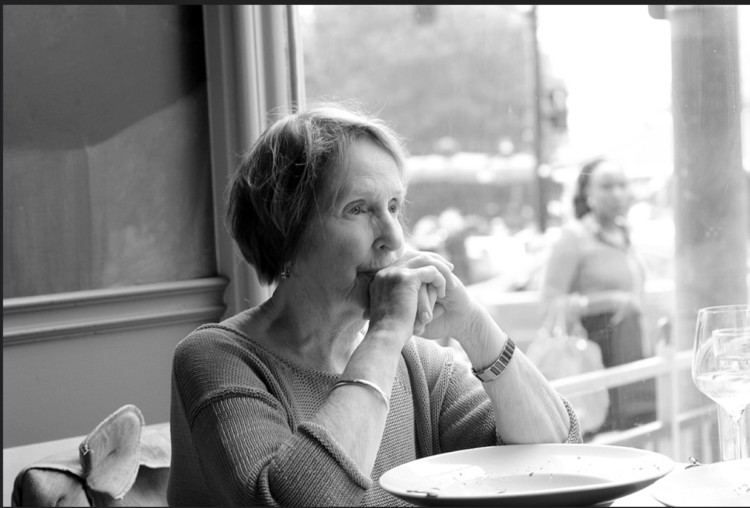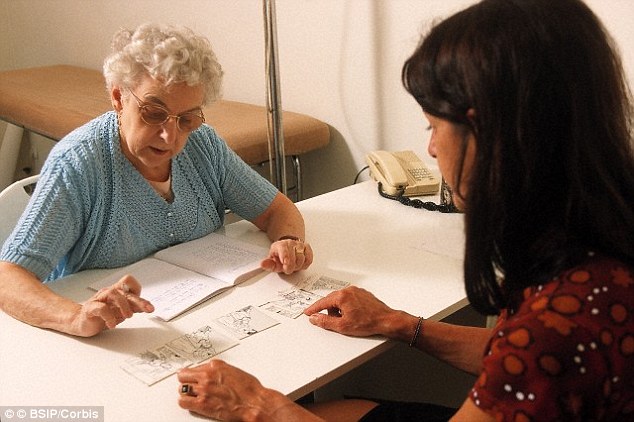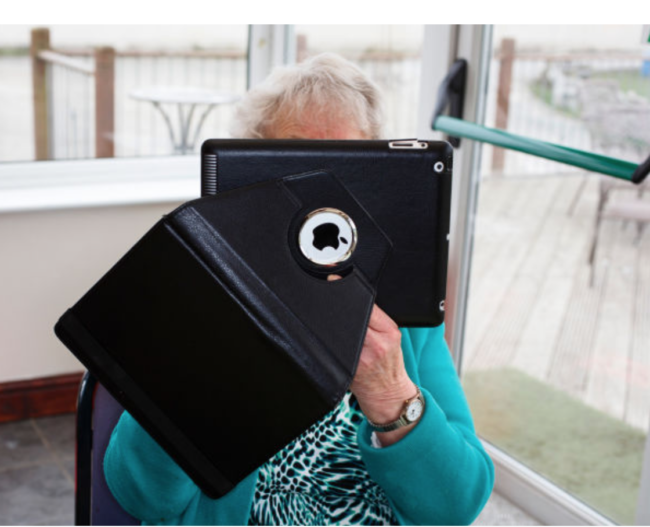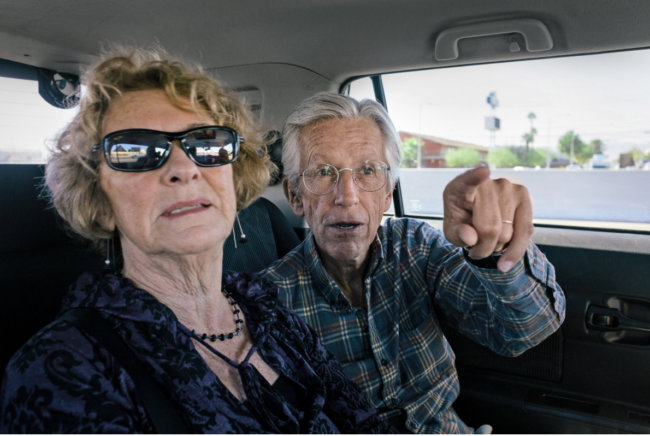When I teach “Women and Aging,” I start off by asking the participants to fill out an Aging Inventory. One of the questions is, “What is your greatest fear about aging?” Invariably 85% of the class, or higher, will answer, “Developing Alzheimer’s.”
There is ample evidence to support my students’ fear of developing Alzheimer’s. It strikes more women than men and is the fifth-leading cause of death for people age 65 and older. But does this mean every one of us over 65 should panic and go into a tailspin when we can’t find our car keys or forget the name of an acquaintance?

An older woman worried about memory loss.
In order not to drive yourself crazy over forgetful behavior, it’s helpful to know the warning signs of Alzheimer’s and to compare these to typical age-related changes.
Borrowing from the Alzheimer’s Association’s website, I’ve condensed the ten warning signs along with normative memory changes as we age.
- Memory Loss that Disrupts Daily Life. Example: Asking for the same information over and over as compared to what’s normal: forgetting names or appointments but remembering them later.
- Challenges in Planning or Solving Problems. Example: Trouble following a familiar recipe or keeping track of monthly bills as compared to making occasional errors when balancing your checkbook.
- Difficulty Completing Familiar Tasks. Example: Trouble driving to a familiar location as compared to occasionally needing assistance, like in recording a TV show.
- Confusion with Time or Place. Example: Losing track of dates or the passage of time as compared to getting confused about the day of the week and remembering it later.
- Trouble Understanding Visual Images and Spatial Relationships. Example: Difficulty reading, or judging distances, which can cause disorientation when driving as compared to normal vision changes, related to cataracts. “Night blindness” or difficulty seeing clearly when driving at night, is normative.
- New Problems with Words in Speaking or Writing. Example: Getting lost in the conversation flow or forgetting common vocabulary names, like calling a watch a “hand clock.” It’s normal as we age to experience some difficulty finding the right word.

Taking a professionally administered Alzheimer’s test
- Misplacing Things and Losing the Ability to Retrace Steps. Example: Putting your eyeglasses in the refrigerator, leaving the gas burners on and not remembering these acts. It’s normal to misplace objects from time to time.
- Decreased or Poor Judgment. Example: Making poor decisions like giving large amounts of money to a telemarketer and paying less attention to grooming.
- Withdrawal from Work or Social Activities. Example: Difficulty keeping up with a favorite sport or forgetting how to play bridge can cause one with Alzheimer’s to withdrawal out of embarrassment.
- Changes in Mood and Personality. Example: Rapid mood swings marked by confusion, depression, or anxiety,
If you still think your memory is failing, you can take the online memory test found on the website: memoryrate.com, or ask your physician to refer you to a geriatric specialist who administers Alzheimer’s tests.

Brain training aka learning new computer skills
To keep your brain engaged follow the time-honored suggestions to recharge: do crossword puzzles, learn a foreign language or how to play a musical instrument. Additionally, it’s been found that a strong sense of curiosity fuels the old brain.
The bad/good news is that if you are diagnosed with an early onset of Alzheimer’s, resources abound.
Alzheimer’s support groups have become adept at teaching coping mechanisms, like strategies for remembering. Meetings are held within a supportive community of like-minded souls, which can go a long way towards the feeling that you’re not alone. (There are also support groups for caretakers.)

Gerri Taylor, the Alzheimer’s patient profiled in the ground-breaking NYT article, with her husband, Jim
Numerous family members of Alzheimer’s patients have remarked that assisting the affected spouse or parent has brought them closer together. To read a very moving account of one such couple, see The New York Times special edition, “Fraying at the Edges,” published this past May.
P.S., There are events many of us would be happy to forget, like this year’s Presidential election cycle!
If you’d like more conversations with like-minded women, we have a Facebook group for you: WOW (Women’s Older Conversation)